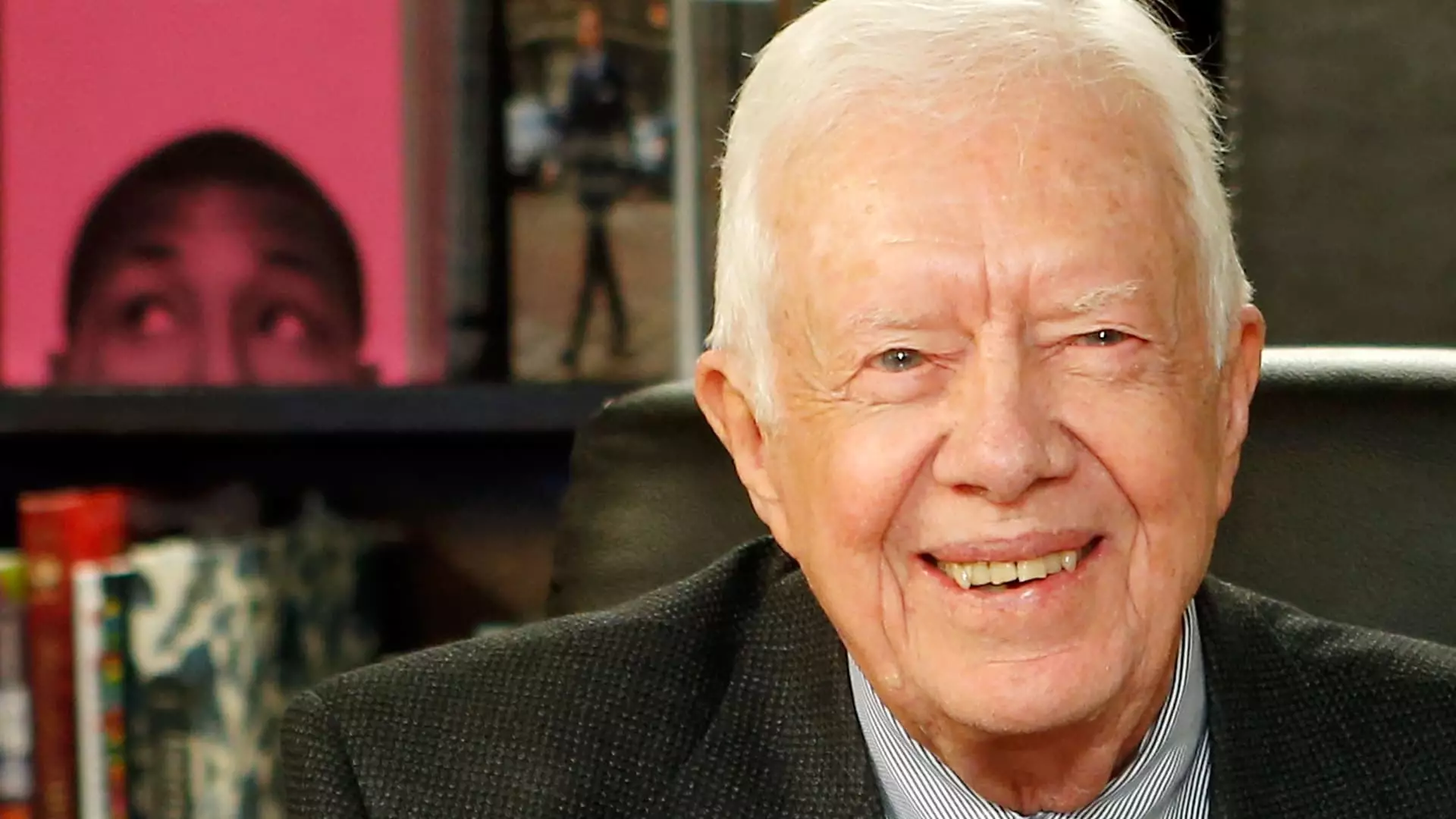Jimmy Carter, the 39th President of the United States, is a figure whose presidency and post-presidency activities intertwine the themes of peace, human rights, and moral leadership. His remarkable journey reflects a man who has dedicated not only his political career but his entire life to advocating for justice, equality, and compassion. From his candid acceptance of personal flaws to his unwavering commitment to peace, Carter’s narrative serves as a compelling examination of leadership in the modern era.
Carter’s political career commenced with a raw acknowledgment of his humanity. During the 1976 Democratic National Convention, he famously remarked, “I’ve looked on a lot of women with lust.” This admission, a raw glimpse into his personal struggles, demonstrated a significant departure from the polished facades often seen in political figures. His willingness to lay bare his imperfections invites a broader conversation about the importance of authenticity in leadership. Instead of presenting an unattainable image, Carter’s honesty resonates deeply, reminding us that leaders are human too, vulnerable to the same temptations and moral dilemmas that all individuals face.
In his inaugural address, Carter framed American foreign policy in moral terms, emphasizing the nation’s responsibility to promote human rights globally. He acknowledged that freedom is inherently linked to the wellbeing of all humanity. This ethos underlined his administration’s focus on diplomacy and human rights, which sometimes put him at odds with conventional political wisdom. Carter’s perspective paved the way for a redefined understanding of what it means to be a global leader, one who prioritizes moral imperatives over mere political expediency.
Carter’s approach to international issues was exemplified during the energy crisis in 1977, where he described the national energy strategy as “the moral equivalent of war.” This metaphor not only galvanized the nation towards energy independence but also invoked a collective sense of purpose. By drawing parallels to wartime unity, he instilled hope and encouraged the American populace to work collectively for a common good.
Perhaps most remarkable is Carter’s enduring commitment to peace. Throughout his life, he repeatedly engaged in peace initiatives, from the Camp David accords forming a peace treaty between Egypt and Israel to normalizing relations with China. In these efforts, he exhibited the key qualities of a statesman: perseverance and empathy. His dedication to human rights led to significant political changes in Latin America, transitioning from authoritarian regimes to democracies.
In his later reflections, Carter expressed pride in these accomplishments, emphasizing peace and human rights as central tenets of his legacy. He believed that a leader’s impact should resonate beyond their tenure, fostering an enduring legacy grounded in compassion.
Carter’s presidency was punctuated by moments requiring moral fortitude, particularly during the Iran hostage crisis. His decision against military retaliation, even when politically advantageous, showcased a profound understanding of the human cost of conflict. In an interview, he remarked that military action could have solidified his power but would have resulted in innocent lives lost, including those of the hostages. This principled stand carved a narrative of restraint that has become a hallmark of his legacy as a leader committed to diplomacy and human dignity.
A Final Reflection
As Carter aged, he continued to reflect on life with grace and humility, confronting mortality while still advocating for the values he cherished deeply. His candid remarks about his cancer diagnosis and his acceptance of death reveal a man at peace with his journey, rooted in a strong belief in life beyond this existence.
Throughout his life, Carter has shown that values such as compassion, justice, and commitment to peace are essential to both individual fulfillment and collective advancement. As he aptly stated, “Our American values are not luxuries but necessities.”
Jimmy Carter’s journey from president to a humanitarian icon encapsulates a profound story of resilience, integrity, and moral leadership. His ability to embrace imperfection, advocate for human rights, and pursue peace continues to inspire generations. As we reflect on his legacy, we are reminded of the power of empathy in leadership and the enduring impact of a life lived with purpose.


Leave a Reply